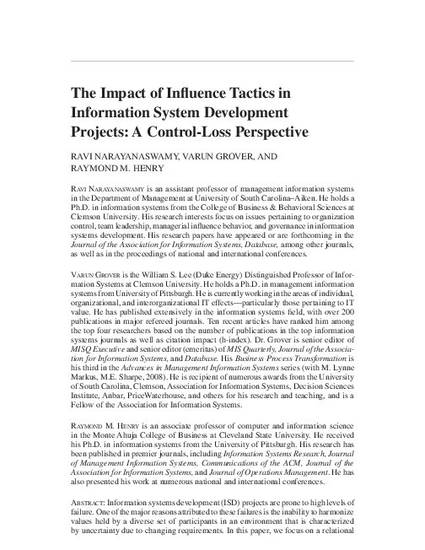
- Information Systems
Information systems development (ISD) projects are prone to high levels of failure. One of the major reasons attributed to these failures is the inability to harmonize values held by a diverse set of participants in an environment that is characterized by uncertainty due to changing requirements. In this paper, we focus on a relational approach to achieve congruence between a project manager and a team member with respect to influence tactics. Constructs of perceptual congruence and communication congruence that reflect a level of agreement and degree of shared understanding between the project manager and team members are described. A congruence model is constructed and tied to an intermediate outcome variable of control loss. One hundred and thirteen dyadic pairs of project managers and team members are surveyed in order to test the model. The results indicate that having strong relational equity and common understanding can minimize control loss. It is important to consider the perspectives of both the project manager and a team member while formulating and assessing monitoring strategies to promote the success of an ISD project. Especially, encouraging team members to discuss disagreements constructively can motivate them to perform better and keep things under control. Finally, it is critical to address the performance problems as they occur rather than wait until the completion of the project.
